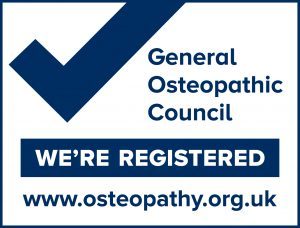My daughters Lisa and Jennifer have both suffered with headaches and stress related issues, without Richard’s expertise in osteopathy and his ability to treat their backs, necks and heads, thus giving them the release from their reoccurring headaches and pain, their lives would be far from normal.
FOR EWELL OR EPSOM RESIDENTS CONSIDERING KNEE SURGERY
RESEARCH FININGS FROM THE NETHERLANDS;
In a randomized controlled trial, patients with degenerative, non-obstructive meniscus tears assigned to a structured program of physical therapy (PT) had similar patient-reported knee function as patients who underwent arthroscopic partial meniscectomy (APM) during a 2-year period.
The findings “are consistent with current consensus that APM should not be the first treatment in middle-aged and older patients with nonobstructive meniscal tears,” the investigators write.
Victor A. van de Graaf, MD, from the Department of Orthopedic Surgery, Joint Research, OLVG Oosterpark Hospital, Amsterdam, the Netherlands, and colleagues published their findings online October 2 in JAMA.
The authors of an accompanying editorial agree that the findings provide additional support for a structured, nonoperative treatment approach to managing this knee condition.
To evaluate the relative effectiveness of PT and APM in this study, the investigators enrolled 321 patients aged 45 to 70 years with degenerative meniscus tears without knee locking, instability, or severe osteoarthritis. Of these, they randomly assigned 159 to receive APM within 4 weeks and 162 to receive a PT exercise protocol developed by a knee-specialized physical therapist. The PT protocol consisted of 16 half-hour sessions over the course of 8 weeks, beginning within 2 weeks of randomization. Surgery patients were only referred to PT if they did not recover as anticipated, and PT patients that did not attain the desired outcomes could extend their PT or elect APM.
Of the patients randomly assigned to PT, 29% underwent delayed APM, “demonstrating that not all patients initially treated with PT were satisfied with their results,” the authors write. “The post-hoc exploratory findings on effect modification could guide future research on the characteristics of individuals who may be less likely to respond to PT to improve their treatment options and functional outcome.”
On the basis of the study results, the authors state that PT may be considered an alternative to surgery for patients with nonobstructive meniscal tears.
RICHARD KATESMARK OF CHEYHAM LODGE OSTEOPATHS COMMENTS; For those of you who don’t know, non-obstructive meniscal tears refer to torn cartilages in the knee which do not cause locking of the joint or severely impede passive movement of the knee. In my experience surgery can often be avoided in these cases as most of them do settle with a combination of treatment & exercises. However it takes time & many people want a quick fix which surgery can offer.
Of course my position is too avoid surgery whenever possible so trying a course of physical therapy with a good osteopath or physiotherapist ( both available here at Epsom & Ewell osteopathic clinic) is advisable. But you have to do the exercises !!!

